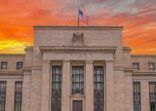“The IMF has proposed to postpone the implementation of the new SDR basket to September 2016, not the review decision itself,” said Aidan Yao, emerging market economist, in a research note.
“The proposed delay is referring to the actual implementation of the new SDR basket – the current one will expire on 31-Dec-2015 – not the decision on the SDR composition, which in our view could still take place in Q4 this year.”
Yao said no mention of postponing the decision on RMB was made in the IMF report, which was issued last week and provided a review on the valuation method for SDR.
“The report clearly stated that ‘this proposal [on the implementation of the new SDR basket]…does not prejudge the timing and outcome of the review.’”
He pointed out that the RMB is today far more “freely useable” and more integrated into international flows than the past few years, something which is part of the criteria for a currency to become eligible for SDR. In fact, the IMF report mentioned that “the RMB is now exhibiting a significant degree of international usage”.
He believes the IMF report was positive toward RMB inclusion in the SDR basket this year.
“That said, although the IMF’s endorsement is important, it’s worth remembering that the actual voting on the SDR, which requires a 70% majority at the executive board, will likely be more political than economic.
“This makes the IMF’s support a necessary but not sufficient condition for the RMB to cross the finish line.”
However, the RMB faces operational hurdles. Yao mentioned determination of a representative foreign exchange rate; choosing suitable interest rates for the SDR portfolio and finding hedging instruments for exposure to the currency.
He added that the RMB is expected to remain stable in the coming months and the IMF report will not affect the RMB’s quasi-fixed exchange rate.
The Chinese government will continue to roll out measures this year to make the onshore markets more accessible to foreign investors, according to AXA IM.
“But given the recent stock market turmoil and its damage on investor confidence, the authorities may be more cautious on the sequencing of liberalization between inflows and outflows.”
















